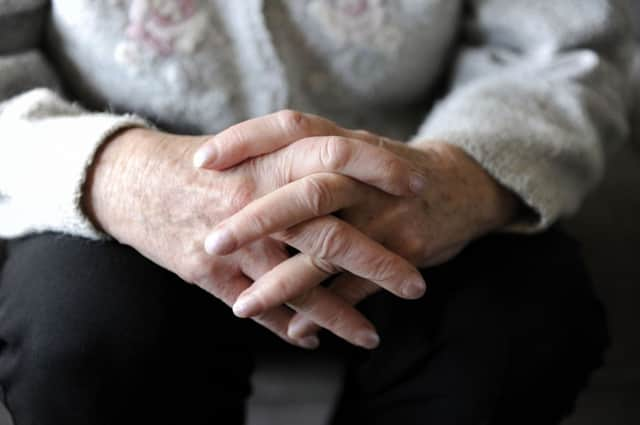Ensuring the elderly don’t to rely on TV for company


Have you gone for more than a day without a single conversation? Do you switch on the television just to hear a human voice?
For many of us, who live our daily lives surrounded by family, friends, colleagues and our communities, this can be hard to imagine. But for an increasing numbers of older people, loneliness and isolation are a painful and daily reality.
Advertisement
Hide AdAdvertisement
Hide AdThrough our helpline, we hear examples every day of people who are coping with being alone.
The heart-breaking fact is that this doesn’t have to be a reality. There are so many ways that people who are feeling isolated can instead feel a part of their local community.
Around 80,000 older Scots are estimated to feel lonely. This can have serious effects on their mental and physical health – it has been likened to having a 15-a-day smoking habit, and is twice as harmful as obesity.
Often these feelings are prompted by specific changes in people’s lives rather than simply being part of the process of getting older – most obviously these include the death of a partner or spouse, moving into new accommodation or a new area, retirement, family members moving away, or a loss of mobility.
Age Scotland works to provide support and information to older people through our partnership with Silver Line Scotland, a 24-hour freephone service (contact 0800 4 70 80 90). Along with this we support our member groups across Scotland with our grants programme.
These grants can fund a day out for an older people’s group, or help with the costs of setting up a completely new venture. If the money helps to tackle the dual problems of loneliness and isolation, we will do all we can to provide it.
A great example of how a little support can go a long way to support people feeling isolated are the concept of Men’s Sheds. These are organisations set up by a group of local men to get together and utilise the craft skills they have developed over a lifetime to be creative.
The Men’s Sheds concept started in Australia and are brilliant at tackling isolation in men. The “Sheds” in Australia now number in the thousands and we’re doing our best to try and replicate their success across Scotland. Better still, once they’re set up, the items that are created by the men can help to create a source of revenue to fund the projects’ long-term viability.
Advertisement
Hide AdAdvertisement
Hide AdHowever, the best thing about ventures like a Men’s Shed is that they are an amazing collaborative effort. The people who want to set one up work themselves to source premises, find businesses to donate tools and supplies.
What we’ve found they need is the professional advice that an experienced charity like Age Scotland can provide through our local development officers, along with small grants to cover for essentials.
Age Scotland campaigns to highlight the incredibly simple ways in which our communities can come together to support older people who are feeling isolated and alone. To find out how you can tackle loneliness and isolation in your area, and for information and advice, visit www.agescotland.org.uk. To help fund one of our many projects that help older people across Scotland, text SELF10 £2 to 70070 to donate.
When research shows that two in five older people say that their only company comes from the television, we must act to stop the tragic health consequences of loneliness and isolation. So we are calling on all people to think about how you could help someone to have someone in their lives. How can you make that connection that can make someone’s day?
It could be as simple as knocking on an elderly neighbour’s door, picking up the phone to call a relative, or offering an older person a lift to the shops or community centre. These are the simple connections that are so easy to give but for the recipient can change their life.
• Brian Sloan is chief executive of Age Scotland